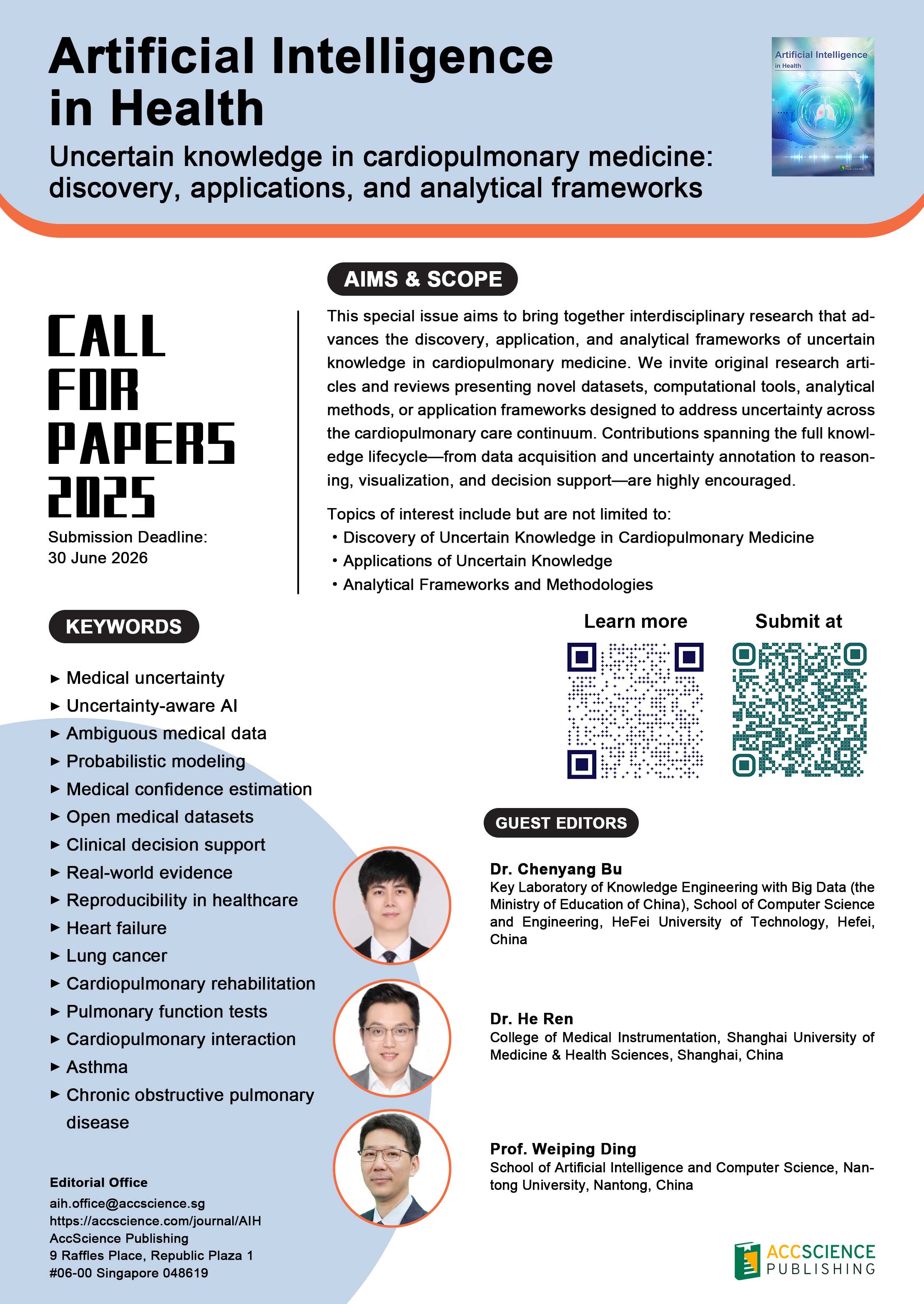
Medical knowledge inherently involves uncertainty, stemming from incomplete evidence, ambiguous symptoms, evolving clinical guidelines, and conflicting expert opinions. This uncertainty challenges clinicians, researchers, and healthcare policymakers in making accurate diagnoses, designing effective treatments, and formulating healthcare policies. The complexity of human biology and variability in patient responses amplify these challenges, making uncertainty management a critical aspect of modern medicine.
These challenges are particularly pronounced in cardiopulmonary medicine, where diseases such as heart failure, chronic obstructive pulmonary disease (COPD), and pulmonary embolism often present overlapping or inconclusive clinical manifestations. Diagnostic ambiguity and evolving treatment protocols in this domain underscore the necessity for specialized approaches to discover, represent, and utilize uncertain knowledge effectively.
Advances in artificial intelligence, machine learning, and the increasing availability of large-scale clinical data—ranging from electronic health records (EHRs) to imaging and wearable device data—offer promising tools to tackle these issues. However, significant gaps remain in data quality, model interpretability, clinical integration, and regulatory acceptance, especially within the cardiopulmonary context.
This special issue aims to bring together interdisciplinary research that advances the discovery, application, and analytical frameworks of uncertain knowledge in cardiopulmonary medicine. We invite original research articles and reviews presenting novel datasets, computational tools, analytical methods, or application frameworks designed to address uncertainty across the cardiopulmonary care continuum. Contributions spanning the full knowledge lifecycle—from data acquisition and uncertainty annotation to reasoning, visualization, and decision support—are highly encouraged.
Topics of interest include but are not limited to:
- Discovery of Uncertain Knowledge in Cardiopulmonary Medicine
- Development of benchmark datasets annotated for uncertainty (e.g., ambiguous imaging, inconclusive tests).
- Extraction and modeling of uncertain clinical knowledge from EHRs, pulmonary function tests, ECG, imaging, and sensor data.
- Longitudinal datasets capturing shifts in clinical understanding and guidelines.
- Synthetic or simulated datasets reflecting rare or ambiguous cardiopulmonary conditions.
- Applications of Uncertain Knowledge
- Implementation of uncertainty-aware diagnostic and prognostic models.
- Decision support systems managing uncertainty in cardiopulmonary care.
- Visualization and interpretability tools facilitating clinical understanding of uncertain data.
- Case studies demonstrating impact in cardiology, pulmonology, and critical care.
- Analytical Frameworks and Methodologies
- Probabilistic and uncertainty quantification methods tailored to cardiopulmonary data.
- Evaluation metrics and validation frameworks for uncertainty-aware models.
- Standards and best practices for reporting and managing uncertainty in clinical research.
- Human-in-the-loop and interdisciplinary approaches to uncertainty management.




